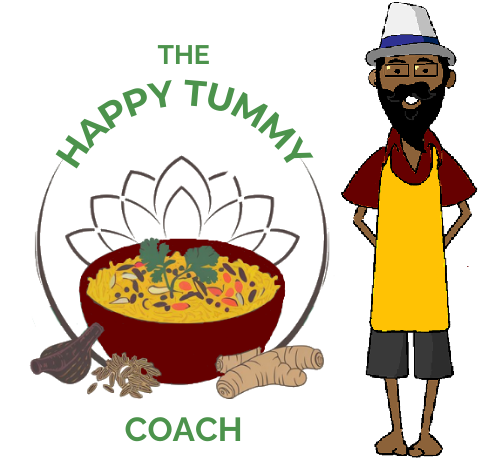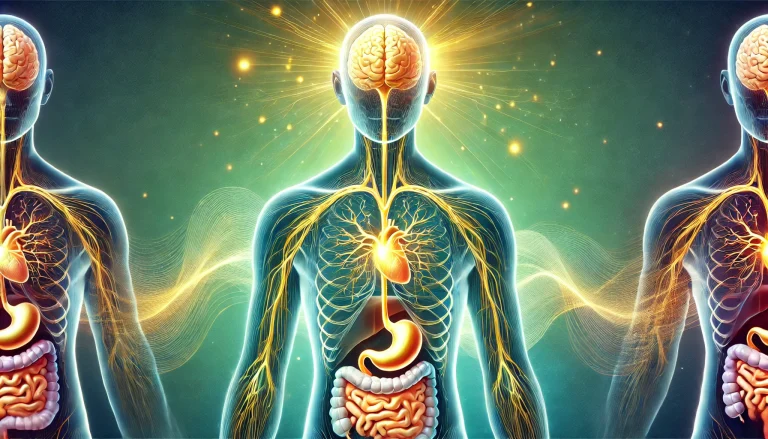What if the key to vibrant health isn’t what we eat, but when we allow ourselves not to eat?
Introduction
The simple act of leaving the stomach empty for periods of time is an often-overlooked cornerstone of health. Ancient traditions and modern science both affirm that allowing time for digestion and detoxification can profoundly improve gut health, energy conservation, and overall vitality.
This post explores the importance of the empty stomach in supporting the gut microbiome, conserving energy for the brain and other organs, and reducing stress on the body. We’ll discuss why the modern approach of “healthy snacking” may not actually be so healthy and uncover the optimal timing between meals for the body to heal and thrive.
Ancient Wisdom on the Empty Stomach
Ayurveda: The Digestive Fire and Meal Gaps
Ayurveda teaches that Agni (the digestive fire) is central to health and well-being. According to this ancient system of medicine, Agni needs time to process each meal fully before being reignited. Eating too often—or without hunger—dampens this fire, leading to incomplete digestion, toxin accumulation (ama), and imbalances across body and mind.
Ancient Ayurvedic principles encourage leaving adequate gaps between meals to allow Agni to work effectively. Scheduled meal times and fasting practices were tools for both physical detoxification and mental clarity.
Traditional Practices Across Cultures
Periodic fasting isn’t exclusive to Ayurveda, nor is it a new trend. Spiritual traditions worldwide, from yogic practices to indigenous rituals, emphasize fasting as a way to rejuvenate the body and mind. These practices inherently respect the body’s natural rhythms, giving the digestive system rest and space to repair itself.
Modern Science and the Empty Stomach
The Gut Microbiome and the Migrating Motor Complex (MMC)
Scientific research confirms what ancient wisdom has long understood: digestion requires rest. The migrating motor complex (MMC), often called the “clean-up wave,” is a series of contractions that sweep through the stomach and small intestine between meals. The MMC only activates when the stomach is empty, clearing undigested food particles and bacteria.
Frequent snacking disrupts this process, leading to an overloaded digestive system, imbalanced gut microbiota, and potential issues like bloating, indigestion, or bacterial overgrowth.
Energy Conservation for Body and Mind
Digestion is an energy-intensive process. The more time and resources the body devotes to digestion, the fewer are available for vital functions such as cellular repair, immune defense, and cognitive activity. A constantly full stomach can lead to fatigue, brain fog, and reduced mental clarity.
The brain, for example, consumes roughly 20% of the body’s total energy. When digestion demands more than its fair share, the energy available for mental and emotional functions diminishes.
The Problem with “Healthy Snacking”
Dispelling the Myth of Grazing
The idea of frequent snacking as a metabolism booster has gained popularity, but evidence suggests this approach may do more harm than good. Continuous eating interrupts the MMC, preventing the digestive system from performing its natural “housekeeping” functions.
Even snacks labeled as “healthy” can strain the gut when consumed too often, overloading digestive organs like the liver and pancreas.
Impact on Detoxification and Gut Health
Frequent eating limits the body’s natural detoxification processes. It disrupts microbial balance and contributes to chronic low-level inflammation in the gut, which can affect overall health and immunity.
Ideal Meal Gaps for Optimal Health
Scientific Insights on Meal Timing
Research recommends leaving 4-6 hours between meals to allow the MMC to activate and the digestive system to reset. Longer gaps, such as the 12-16 hours associated with intermittent fasting, provide additional benefits for cellular repair and metabolic health.
Ayurvedic Meal Timing Guidelines
Ayurveda advises eating two or three meals a day, with the largest meal at midday when Agni is strongest. Evening meals should be light to avoid straining digestion during the body’s natural wind-down period.
The Importance of Conscious Eating
What is Conscious Eating?
Conscious eating means being fully present during meals—engaging the senses, chewing thoroughly, and honoring the process of nourishment. It is about slowing down, savoring each bite, and aligning with the body’s hunger and fullness cues.
Benefits of a Conscious Eating Routine
- Improved Digestion: Eating slowly enhances enzymatic activity and nutrient absorption.
- Reduced Stress: A calm eating environment lowers cortisol levels, which positively impacts digestion.
- Better Relationship with Food: Mindful eating fosters appreciation for food and reduces overeating or emotional eating.
Practical Tips for Conscious Eating
- Eat at the same time each day to establish a routine.
- Remove distractions, such as phones or screens, during meals. And keep conversations present and focused on the meal – taste, texture, smell, sight, sound – rather than the day’s events and future projections.
- Take time to chew each bite thoroughly, allowing the digestive process to begin in the mouth.
Integrating Ancient Wisdom with Modern Science
Both ancient practices and modern research underscore the profound benefits of an empty stomach. Ayurveda offers timeless tools like meal spacing and mindful eating, while science validates the body’s need for digestive rest and energy conservation.
Practical Steps to Start Today
- Leave 4-6 hours between meals, avoiding unnecessary snacking. Create a schedule.
- Incorporate mindful eating into your daily routine.
- Experiment with intermittent fasting if it aligns with your lifestyle.
- Plan your largest meal for midday to harness optimal digestive power.
Conclusion
An empty stomach is not a deprivation—it’s an opportunity for the body to heal, detoxify, and replenish its energy reserves. By embracing practices like meal spacing, conscious eating, and fasting, you allow your body and brain to function at its best.
Take a step toward vitality today. Give your body the space it needs to thrive and witness the transformative power of the empty stomach.
Research, References, and Further Reading
- The Migrating Motor Complex (MMC) – Research From Science Direct
- Understanding The Agni Principle – The Art of Living
Exploration of Ayurvedic meal spacing principles for optimal health.
Explore here - Health Benefits of Intermittent Fasting – Published Review Article
- Mindful Eating: A Review Of How The Stress-Digestion-Mindfulness Triad May Modulate And Improve Gastrointestinal And Digestive Function – National Centre for Biotechnology Information
By exploring these resources, you can deepen your understanding of the empty stomach’s critical role in health and well-being.





